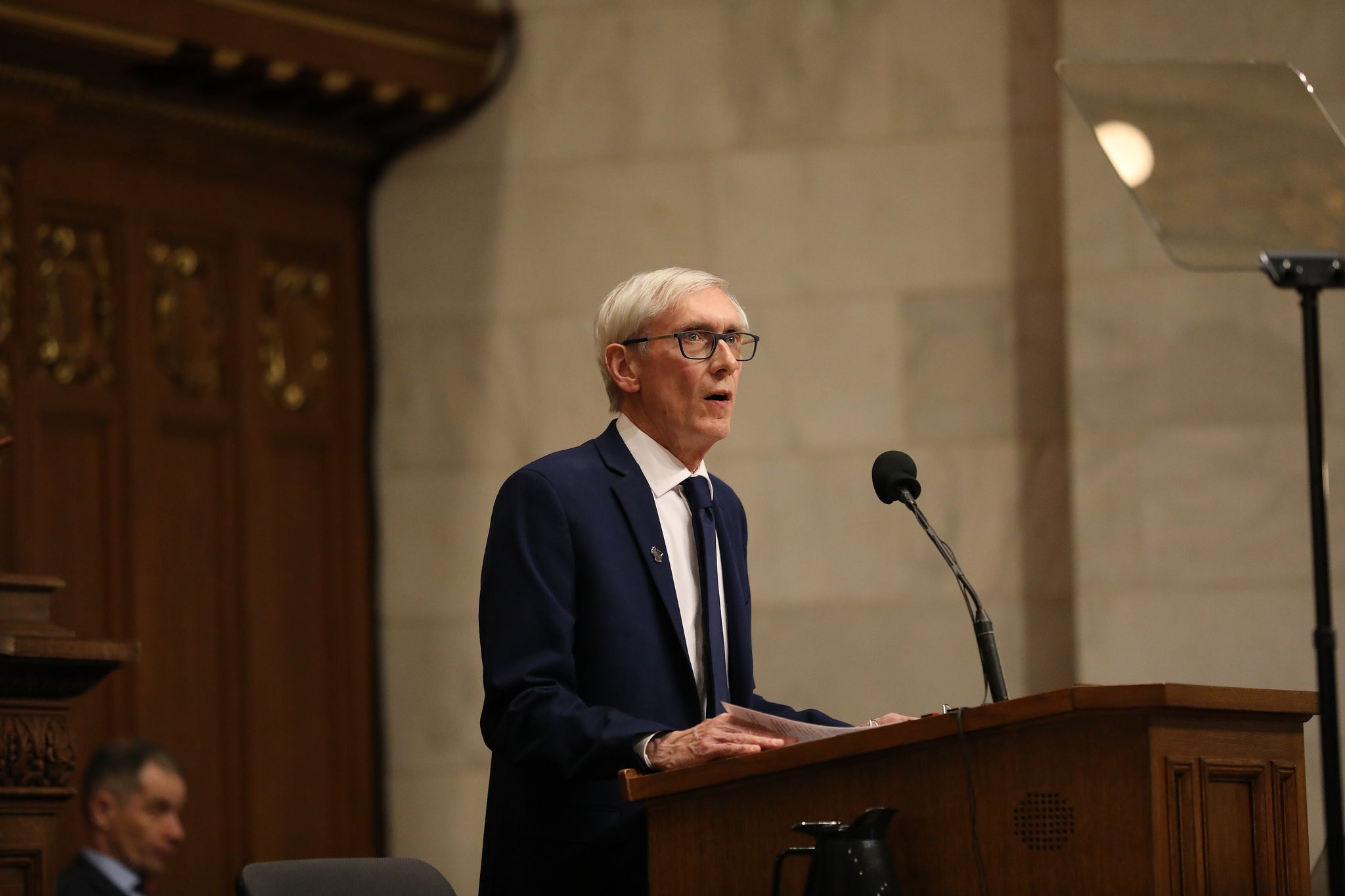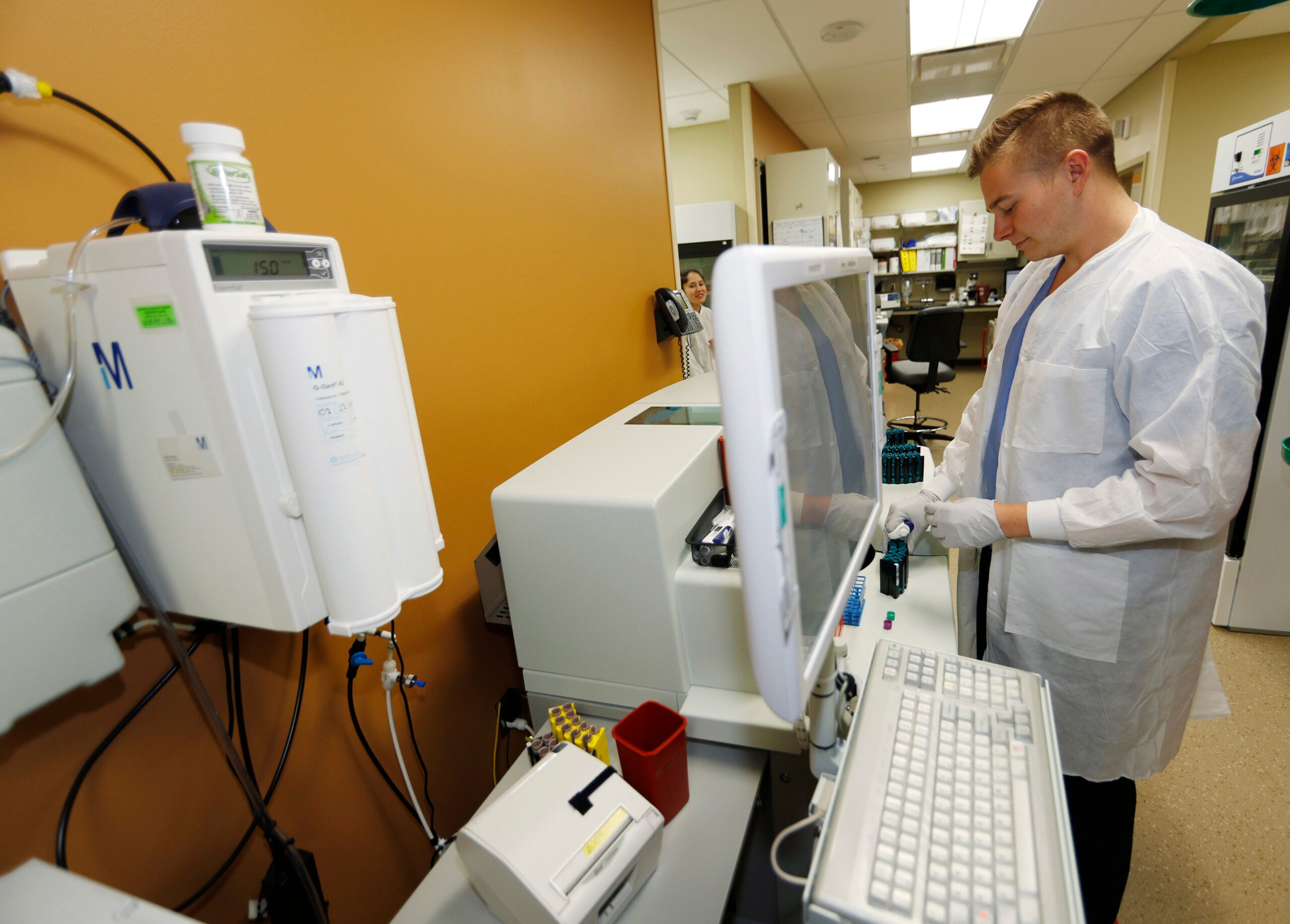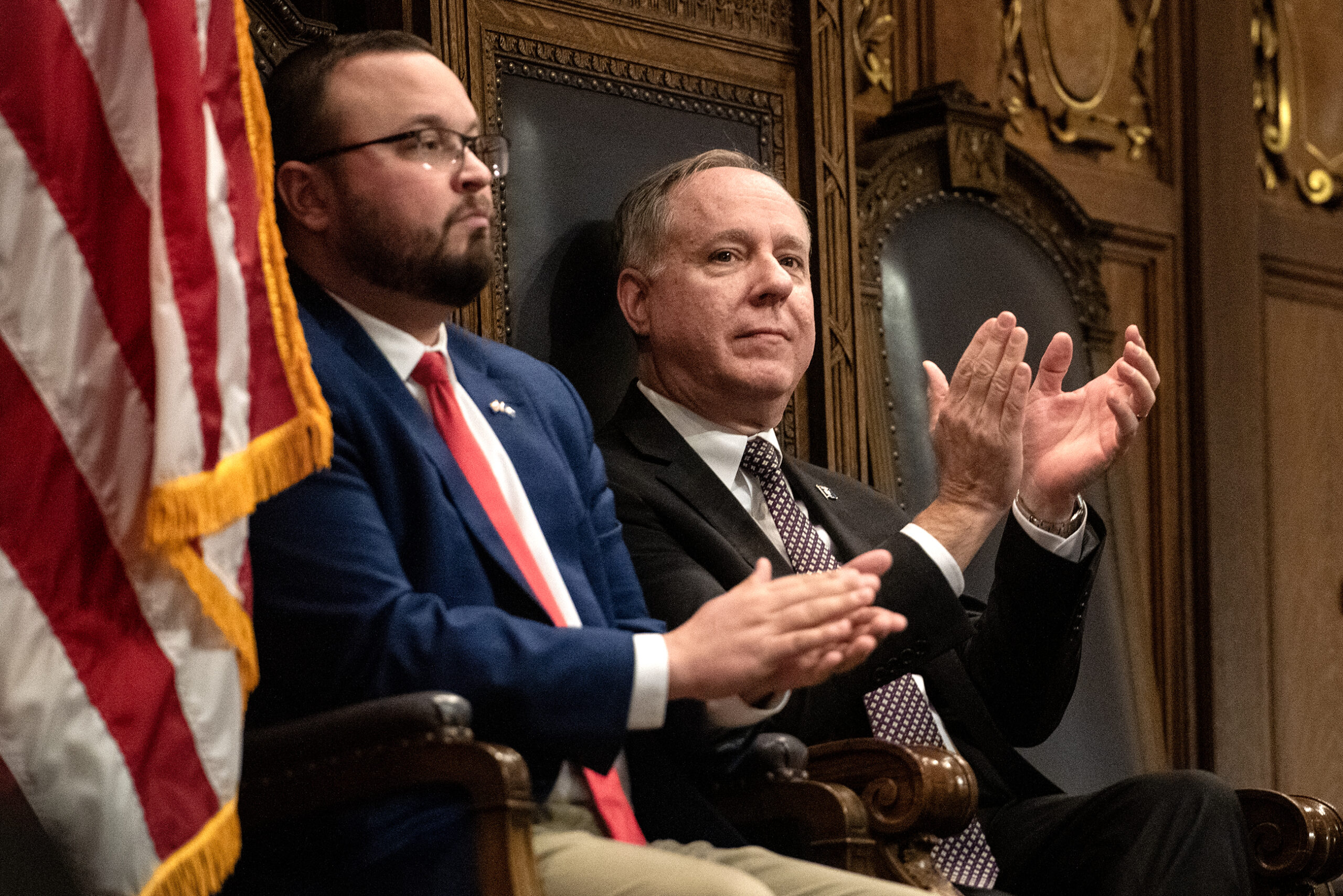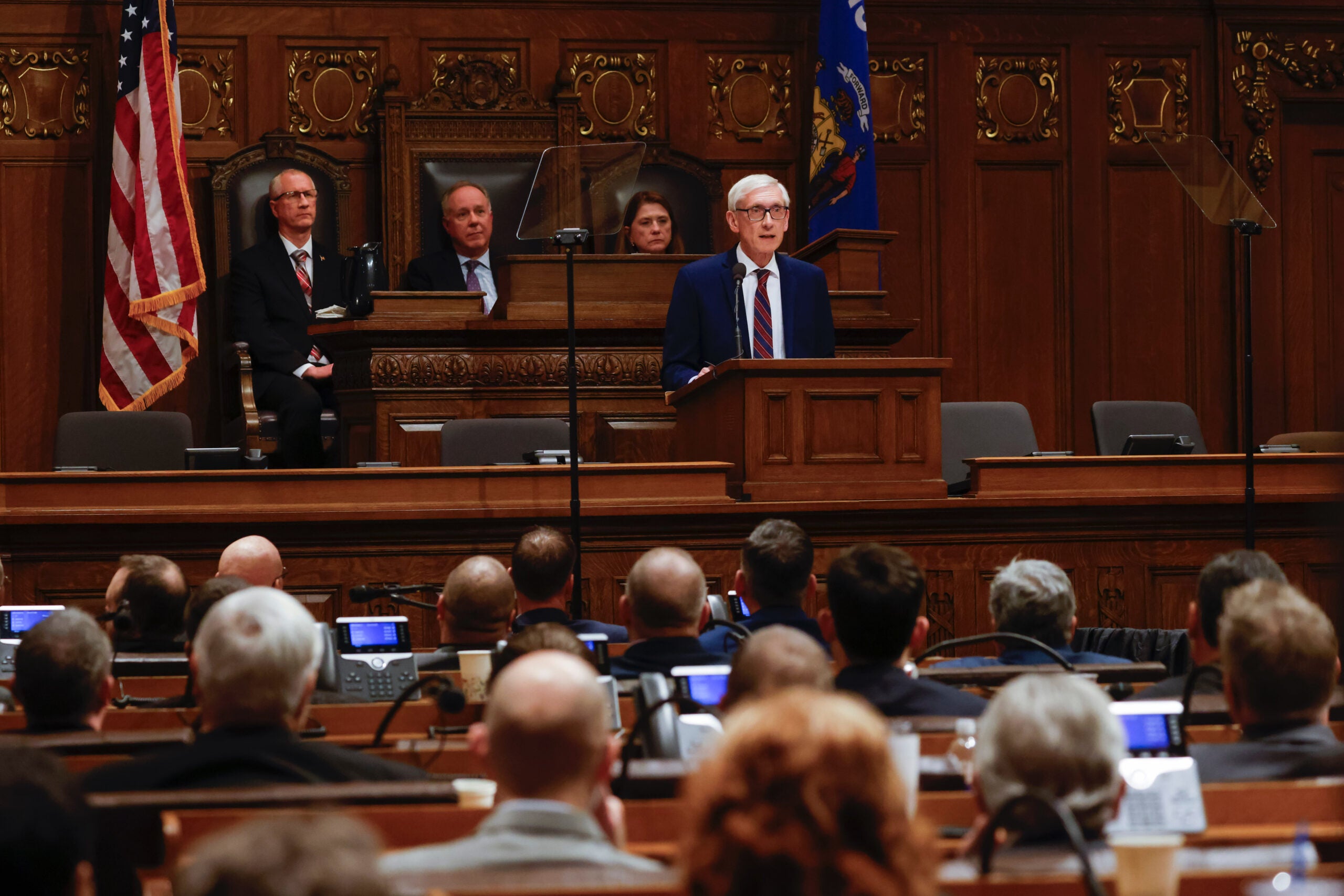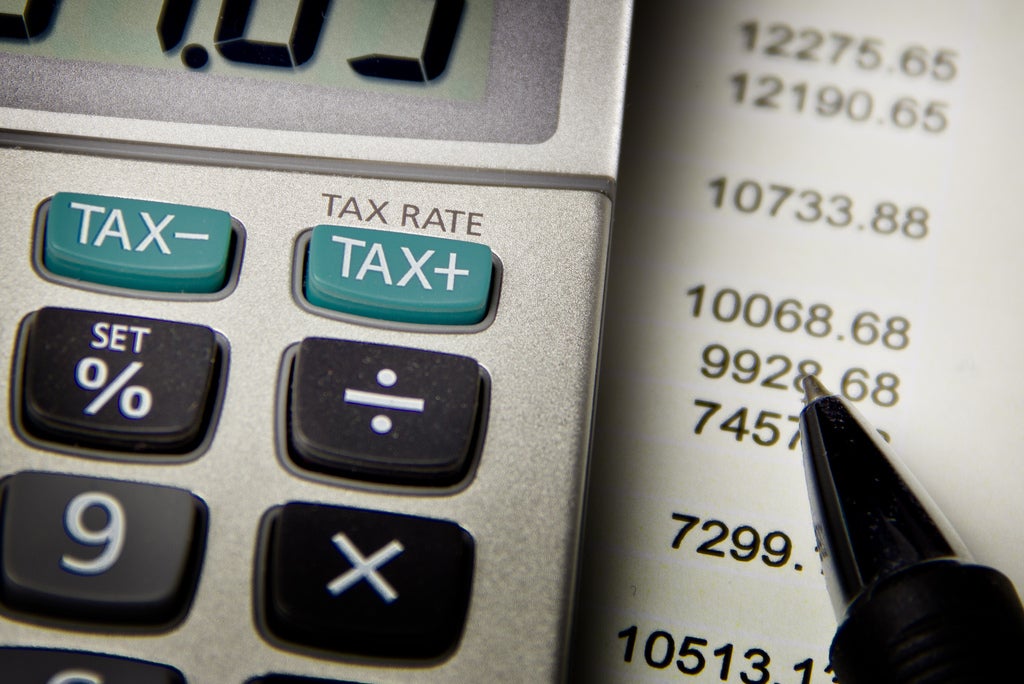Democratic Gov. Tony Evers said Tuesday he can’t support a Republican-authored tax cut moving through the Legislature, telling reporters the state wouldn’t have enough funding to pay for the plan in the future.
At the same time, Evers’ promoted a new Democratic tax cut that would only offset about 60 percent of its costs to state government.
The developments happened on a day when Republican leaders held a public hearing on their tax plan, which they’ve billed as a compromise with the governor.
Stay informed on the latest news
Sign up for WPR’s email newsletter.
Evers all but promised to veto the GOP bill if it reaches his desk.
“I don’t think I could possibly sign a tax cut of that type where the money going forward is not there,” Evers said.
Asked about the governor’s latest tax cut proposal, which would be paid for in part by reducing a tax credit for manufacturers, Assembly Speaker Robin Vos, R-Rochester, drew his own line in the sand.
“If the proposal is based on raising taxes on anyone in the state, it’s a non-starter,” Vos said.
The latest tax cut plan from Evers bears similarities to what he talked about during his campaign, but it’s not identical.
It would offer individuals who earn below $80,000 and families that earn below $125,000 a 10 percent tax credit. According to Evers’ office, the credit would be phased out gradually for individuals who earn up to $100,000 and families who earn up to $150,000. Evers would also expand Wisconsin’s Earned Income Tax Credit.
The Republican tax cut would work by expanding Wisconsin’s standard deduction for individuals who earn up to $127,000 or families who earn up to $155,000.
Evers’ tax cut would be larger than the one proposed by Republicans. Over the next two-year budget, it would cut income taxes by about $890 million while the Republican plan would cut income taxes by nearly $500 million.
The other big difference is in how Evers and Republicans would pay for their plans.
Republicans would rely on an existing balance in the state budget to pay for their tax cut, arguing anything else would amount to a tax increase.
Evers would scale back a tax credit for manufacturers who earn more than $300,000, saving state government nearly $520 million in the process. Evers’ latest proposal wouldn’t affect agricultural businesses.
Even with that source of funding, Evers plan still would leave about $375 million of his tax cut unpaid for, meaning it would come out of the state budget’s general fund that pays for other expenses like schools, prisons and health care for low-income residents.
Vos said it was “a little bizarre” that the governor was complaining about Republicans not paying for their tax cut with long-term funding sources when his own tax cut wasn’t fully funded.
“I’ll be interested to see what their final numbers are,” Vos said.
Evers is expected to formally unveil his budget on Feb. 28.
Evers also told the Wisconsin Counties Association on Tuesday the budget would also include a proposal to close a so-called “dark store loophole” that local governments say has shifted property tax burdens from large retailers to homeowners.
“It should be fair for all, and in order to do that, we have to close that loophole,” Evers said.
A similar proposal died in the Legislature last year. GOP leaders said at the time they worried it could put brick-and-mortar department stores at a disadvantage to online retailers.
Wisconsin Public Radio, © Copyright 2025, Board of Regents of the University of Wisconsin System and Wisconsin Educational Communications Board.
